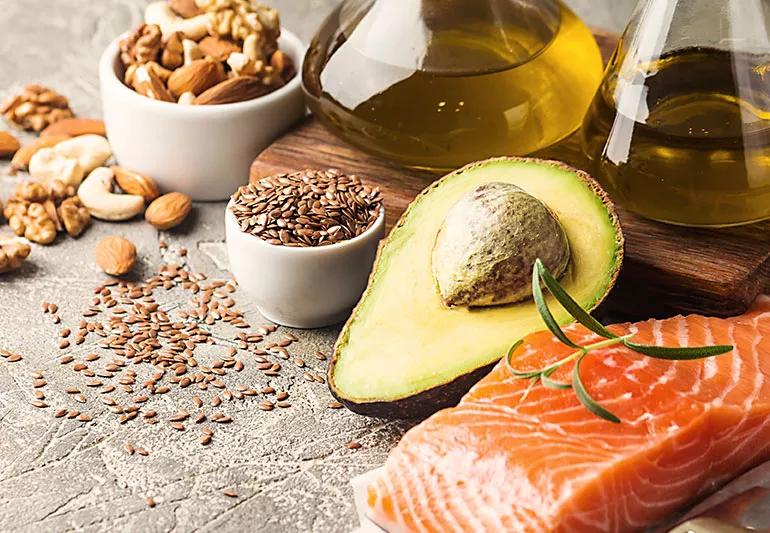
Nutrition trends come and go. But omega-3 fatty acids are a nutrient that has stuck around — and for good reason.
Cleveland Clinic is a non-profit academic medical center. Advertising on our site helps support our mission. We do not endorse non-Cleveland Clinic products or services. Policy
Omega-3 fatty acids, commonly called omega-3s, are a group of unsaturated fatty acids that your body needs for many functions. Since it’s best to get the nutrients you need from foods instead of pills or supplements, it’s important to include foods rich in omega-3s in your diet.
But many Americans aren’t eating enough of this healthy fat. Registered dietitian Anna Taylor, MS, RDN, LD, explains the health benefits of omega-3s and which foods are the best sources.
Every cell in your body needs omega-3s, especially the eyes and brain. Omega-3s are also important for muscle activity, immune function, digestion and fertility.
But most of the research on omega-3s has studied its heart health benefits. “People who eat omega-3s in their diet may have less plaque buildup in their arteries, lowering the risk of heart attack and stroke,” Taylor says. “Omega-3s lower triglyceride levels and may slightly raise ‘good’ HDL cholesterol levels.”
Taylor adds that some research suggests eating more foods rich in omega-3 fatty acids, like fish, may have lower risks of cognitive function problems, like Alzheimer’s disease and dementia. It’s still an area of continuing research, though.
There are other possible benefits, too. Some research shows that regularly eating omega-3s may lower the risk of:
“Eating foods high in omega-3s is a good move for most people,” Taylor explains. “But don’t expect them to treat all your health conditions. Work with a doctor to manage health problems and talk to a nutritionist about the best diet for you.”
When a food label lists omega-3s, check which kind it contains. Omega-3 fatty acids are a group of different fats, not just one. And they’re not all created equal when it comes to their benefits.
The three main types of omega-3 are:
EPA and DHA are mainly found in fish. ALA is found in plant sources like canola oil, flaxseed, soy and walnuts.
“ALA is a precursor to the other types of omega-3,” Taylor explains. “A precursor means your body has to convert ALA to EPA and DHA.” This conversion process varies from person to person, and it’s not always efficient. So to really boost your body’s omega-3 levels, get at least some EPA and DHA from your diet.
If you want to add more omega-3s to your diet, eat more fish. This will give you the biggest dose of EPA and DHA. Choose fish that have the highest amounts of omega-3s, including:
Most adults should eat at least two servings of fish each week. If you have heart disease and don’t eat fish regularly, your healthcare professional may recommend EPA and DHA supplements. Fish oil supplements can interact with some medications, though, so check with your provider before taking them.
If you’re pregnant or nursing, you can safely eat up to 12 ounces of low-mercury fish per week. Some of the best choices are:
Avoid these types of fish, which have high mercury levels that can be harmful to a fetus or nursing baby:
What if you don’t like fish or you eat a vegetarian or vegan diet? “You can get some of your omega-3s from plants, but most vegetarian sources of omega-3 only contain ALA,” Taylor says. And while ALA is healthy, it won’t boost your body’s levels of omega-3 like DHA and EPA will.
How to get more ALA and vegetarian omega-3:
Algae oil contains DHA, making it a good vegetarian omega-3 choice. Food manufacturers may add algae or algae oil to foods and beverages. Look for DHA-fortified foods if you don’t eat fish.
Most people can safely add more fish to their diets to boost their omega-3 intake. But talk to a healthcare professional before you make any major diet changes or start taking supplements.
Learn more about our editorial process.
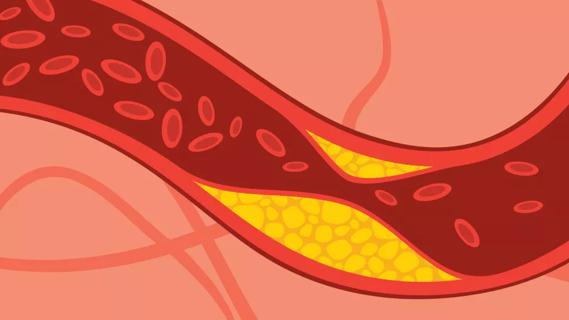
LDL cholesterol and lipoprotein (a) cholesterol are more likely to stick to your arteries and lead to dangerous heart events
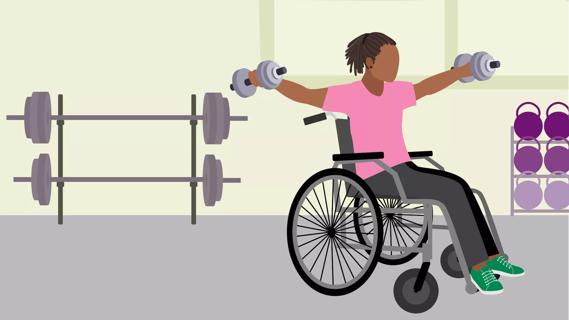
Resolve to move a little more, drink a little less, eat a little healthier, sleep a little better and destress a lot

If you’re eating more than one egg per day, you might want to cut back

Is butyrate the next big thing in gut health?
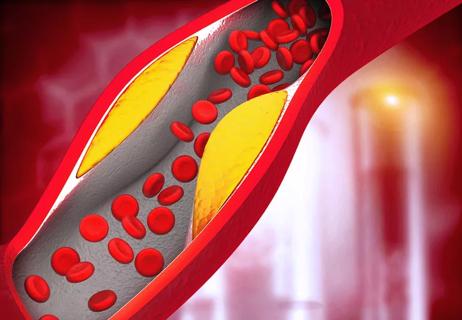
Your family tree may increase your risk of high cholesterol and heart disease
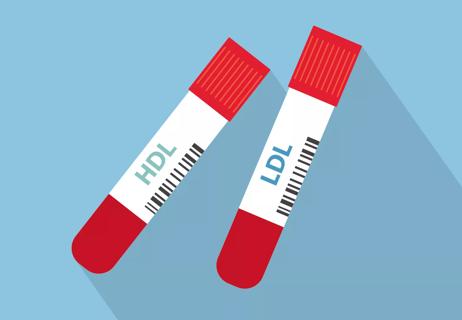
Understanding the difference between ‘lousy’ and ‘healthy’ cholesterol can help you keep your heart healthy

Spoiler alert: The potential benefits of drinking alcohol may be a tad overstated
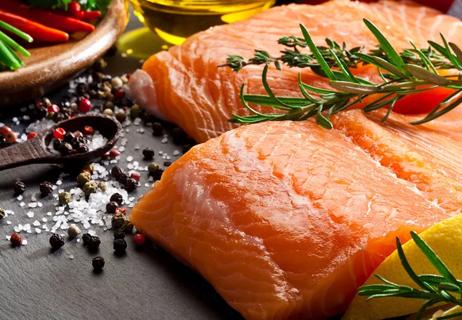
Debating the health benefits and risks

Your metabolism may torch 1,300 to 2,000 calories daily with no activity

A gentle touch in all the right places may help drain your sinuses